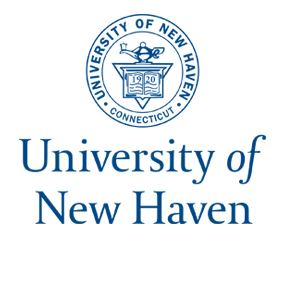
University News
University of New Haven Acquires Railroad Salvage Building and Land Adjacent to Main Campus
The 130,000 square-foot-building and 12-acre lot will be reimagined to create a pioneering Research and Development Center.
The Charger Blog
In response to recent acts of violence and discrimination targeting members of the AAPI community across the country, members of the University community came together to offer support and foster a dialogue that promotes education, inclusion, and healing.
April 12, 2021
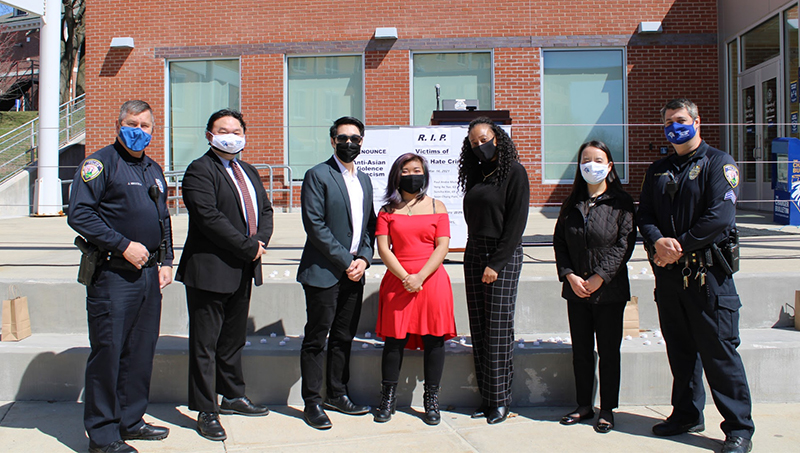
Distinguished professor Henry C. Lee, Ph.D., has worked on more than 7,000 major case investigations during his decades-long career. A world-renowned forensic scientist, he has served as an expert in all 50 states and more than 30 countries, working on some of the most high-profile cases of the past half century. Yet, he says, as a Chinese American forensic scientist and investigator, he has faced discrimination.
Dr. Lee spoke to the University community as part of a recent virtual event titled “Courageous Conversations: The Rise in Anti-Asian Violence,” that was held in response to the recent acts of harassment and violence directed toward the Asian American and Pacific Islander (AAPI) community nationwide.
Reflecting on the rise in hate crimes targeting the AAPI community since the start of the coronavirus global pandemic, Dr. Lee expressed his concern about the epidemic of racism in the United States. He told the University community that the problem is not new, as he has personally faced racial harassment during his decorated career.
“Talk is cheap, it is easy,” he said. “I think it’s more important for legislators to develop programs and pass bills to protect minorities and the victims of attacks and discrimination. Government leaders should not just make statements. They should take action. We should be all equal. We should help each other, rather than attack each other.”
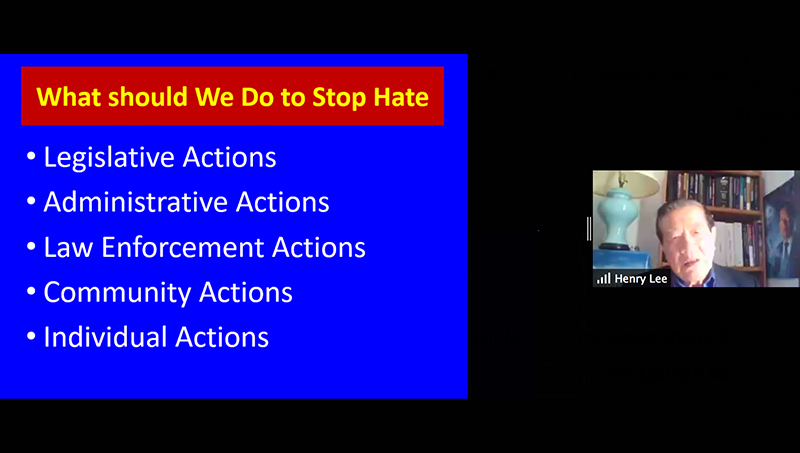
In organizing the event, Dean of Students Ophelie Rowe-Allen, Ed.D., emphasized that the University stands in solidarity with all Asian Americans and Pacific Islanders and condemns any acts of violence and hate. Angered and appalled by the acts of racism targeting the AAPI community nationwide, the University community came together for two recent events to show support for the AAPI community and to promote education, conversation, and healing.
The initial virtual forum enabled members of the AAPI community to share their stories as well as reflect on how the recent events across the country have personally impacted them and their families.
“It causes a lot of distress and worry for my family in China,” said Hang “Chelsea” Su ’23, a forensic science major . “It’s a very critical time for us to start a discussion about how this can impact international students and students of Asian descent in the United States.”
Thomas Chung ’22, a communication major from Flushing, NY, says he is worried about the safety of his own family members.
“We’re seeing attacks against Asian people in my neighborhood,” he said. “I fear that, if it can happen to them, can it happen to my family?”
For Kento Yasuhara, Ph.D., an associate professor of psychology, the past few weeks have been devastating. He told the University community that he has felt overwhelmed by the recent attacks and discrimination, and it has impacted him both professionally and personally.
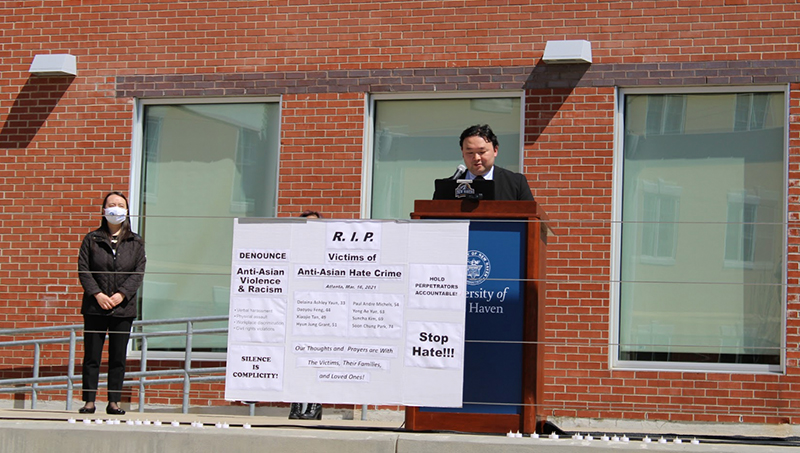
“I’m thinking about my own safety, and I’m thinking about my family’s safety,” he said. “I have a seven-year-old who I have to explain this to. Does he understand it all? No, but I’m afraid he’s going to encounter something he won’t understand, and that’s been weighing on my mind.”
As a follow up to the virtual event, the University hosted “Healing in Action: Support for the AAPI Community” on campus and online. Dean Rowe-Allen offered actionable ways that Chargers could support the AAPI community. She encouraged everyone to educate themselves, to continue to have conscious conversations in and out of the classroom, and to check in on their fellow Chargers.
“Anti-Asian racism started long before the COVID-19 pandemic,” she said. “My hope for the Charger community is that we will continue to focus on education, inclusion, and belonging. Let’s continue to make the University a place where the sacredness of each person is honored and diversity and inclusion are aggressively pursued.”
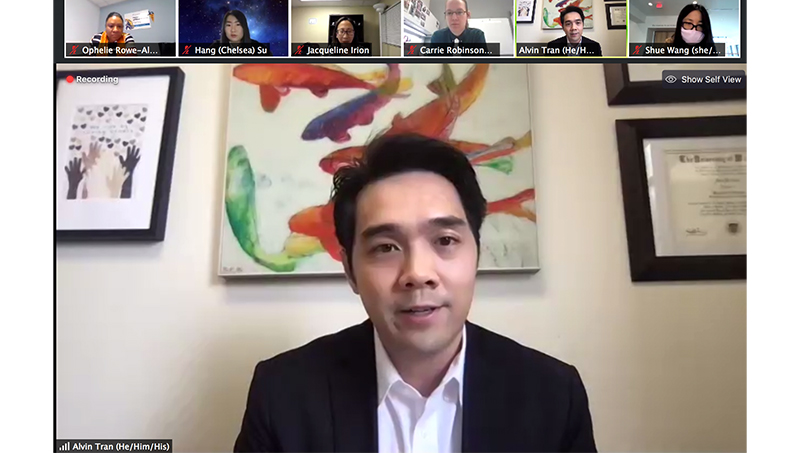
Sofia Martinez ’22, president of the University’s Undergraduate Student Government Associations, echoed Dr. Rowe-Allen’s commitment to fostering inclusion and offered her support to the University’s AAPI community on behalf of the undergraduate student body.
“There’s a certain frustration I am experiencing in that this isn’t the first time I’m speaking after a mass shooting,” said Martinez, a communication major. “That should not desensitize us to the role we have in creating change. This is not okay. We have to condemn all acts of hate. To the members of our AAPI community: We will actively commit to playing a role in disarming hate. We hear you, and we see you.”
Chargers were encouraged to be upstanders and to report any instances of racially-motivated aggression through the University’s Report It system.
The event also enabled members of the AAPI community to share their stories, concerns, and messages of hope. Rebecca Chan-Chao ’21, a forensic science major and president of the Asian American Student Union, read a poem, and she shared her own feelings about how the violence has impacted her.
“I am mad, I am angry, I am sad,” she said. “I am Asian America, and you can’t separate one from the other.”
Alvin Tran, Sc.D., MPH described his own experience these past few weeks, which he said has been “draining” and “very heavy.” He also told the University community about his painful experiences growing up in Washington State when he was told to “go back to his country,” yet he offered a message of hope to his fellow Chargers.
“I’m Vietnamese American, and I’m proud of that,” said Dr. Tran, an assistant professor in the Department of Health Administration and Policy and assistant provost for diversity, equity, and inclusion. “As we move forward, I think the AAPI voice is only going to get louder. No one is going to tell us to ‘go back to our home country’ because we are already in our home country. We are not going anywhere.”

University News
The 130,000 square-foot-building and 12-acre lot will be reimagined to create a pioneering Research and Development Center.
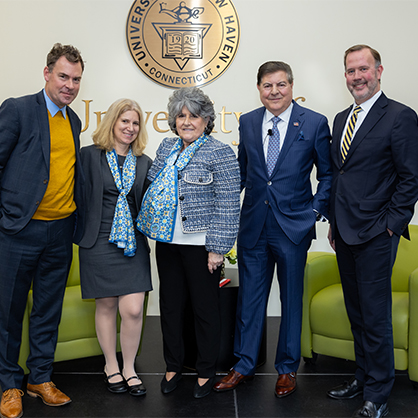
The Charger Blog
In an engaging fireside chat with the University of New Haven President Jens Frederiksen, Ph.D., Frank Martire ’77 MBA, an esteemed business leader, philanthropist, and advocate for higher education, shared insights on leadership, navigating challenges, and staying true to your values in a complex world.

The Charger Blog
Students share their transformative moments from studying at the University’s Prato campus during the Fall 2024 semester.